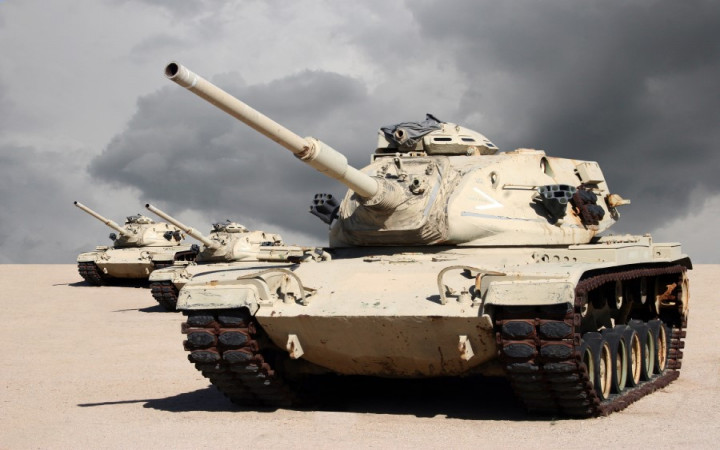Today’s Wonder of the Day was inspired by William. William Wonders, “Who, where, and when did war start” Thanks for WONDERing with us, William!
Do you keep up with current events? Whether you read a newspaper on a regular basis or watch the evening news, it's important to keep up with things going on in the world around you. Part of the responsibility of being a citizen of the world is being aware of the changes constantly taking place around the world.
If you watch the news, one of the harsh realities of the world is the number of wars that are ongoing around the globe. Despite all our societal advances, conflicts still arise between groups of people, and war is still used as a method to resolve those conflicts.
Looking back, you might WONDER when and how wars ever got started in the first place. Although there's no way we'll ever know exactly when violence first became a solution to a perceived problem, it's not hard to imagine situations that may have led to one man taking up arms against another.
When the first humans roamed Earth, life was harsh and obtaining food and shelter was hard work. Humans learned that it is more efficient to divide work among a group, and to trade resources with other groups.
Conflicts arose between groups of people over resources of the land: food, materials, and shelter, to name a few. Did one prehistoric group of people decide they wanted the cave another prehistoric group had found first and take it by force? No one will ever know, but it's easy to imagine how the first fights might have broken out.
Individual or small group instances of violence are different than full-blown wars. We get our English word "war" from the High German ("werran") and Old English ("werre") words that mean "confusion" or "to confuse." If you read firsthand accounts from soldiers who have taken part in wars, you'll recognize how accurate a description that is of what takes place in a war.
For a war to occur there needs to be a large-scale organization of people and weapons directed with a purpose. As a result, the first wars didn't come about until the first societies and civilizations were formed.
Researchers believe the first wars took place long before recorded history. Archeologists, for example, have found evidence of what they believe may have been the first prehistoric war along the Nile River near the Egypt-Sudan border.
At a site known as Cemetery 117, archeologists have uncovered a large group of bodies with arrowheads lodged in their bones, which leads experts to believe they were the victims of a large battle. The remains have been dated to the Mesolithic era, over 13,000 years ago.
Historians believe the first war in recorded history took place in Mesopotamia in 2,700 B.C. between the forces of Sumer and Elam. Enembaragesi, the King of Kish, led the Sumerians to victory over the Elamites in that war. Although we don't know much about what led to this war, some experts believe it was likely the result of societies beginning to compete for limited resources as agriculture began to replace hunting and gathering.
The war between Sumer and Elam was likely merely the first of a nearly-constant series of ongoing conflicts in the region. As the tools and methods of war were developed and honed, it became easier and easier to fall into the patterns of war rather than seeking peace. Given war's long history in our world, it's no surprise that we still haven't figured out how to avoid it in today's modern world.
So why do wars occur? There are many reasons groups of people go to war with other groups. Major conflicts are often a result of clashes in religion or culture, disputes over territory or other resources, acts of revenge, or to make radical changes in a nation's government.





